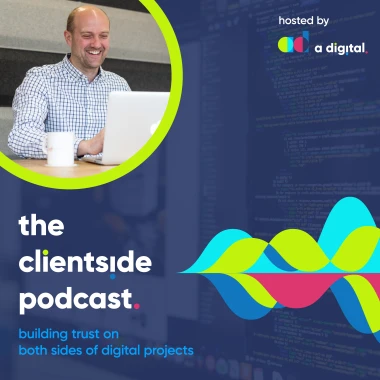
Branding with Megan Matthews
The Clientside Podcast
42 min Megan Matthews
Andrew Armitage talks to branding and PR expert Megan Matthews.
Megan explains exactly what branding means, and how this goes much further than you may typically realise.
We discuss the importance of authenticity, especially when it comes to your brand story and why having a re-brand isn't always the solution that's needed.
Listen on your smart device or read the transcript below
I actually would rebrand looking at a company's overall culture, mission, values that to me is a rebrand, I think you know, a visual updating of your assets is something different and not newsworthy.
Megan Matthews Tweet